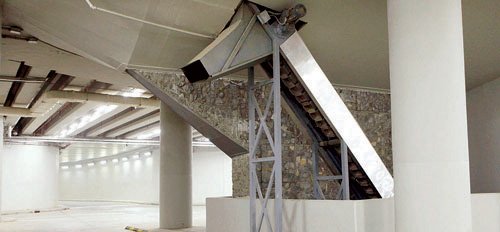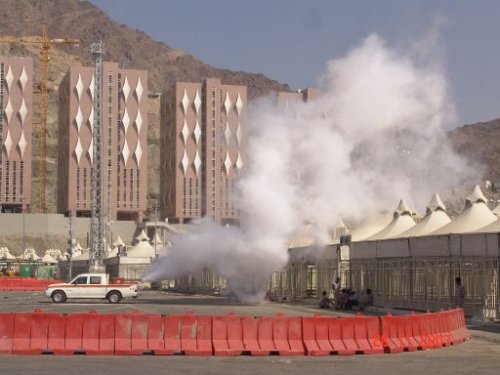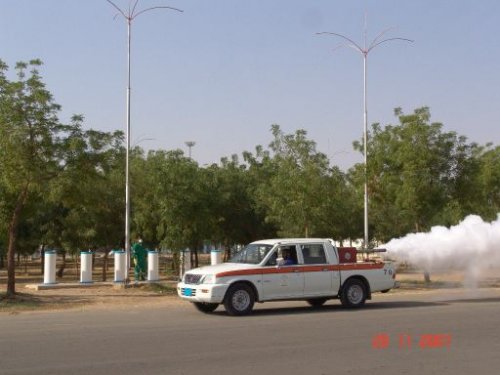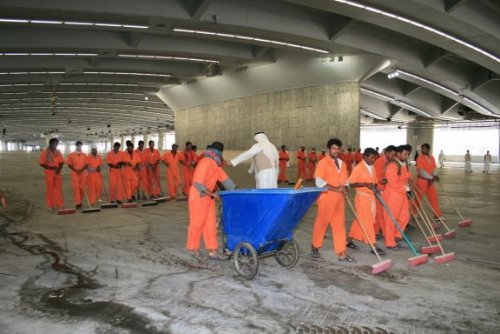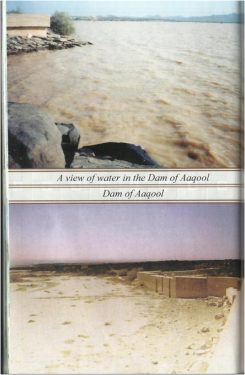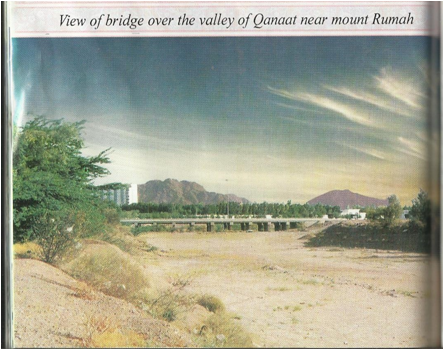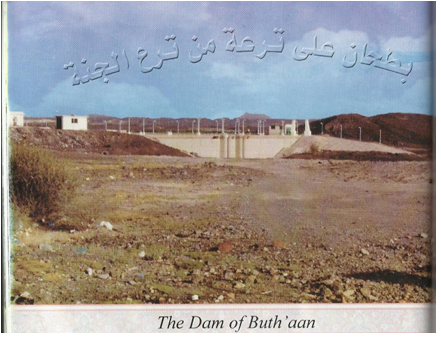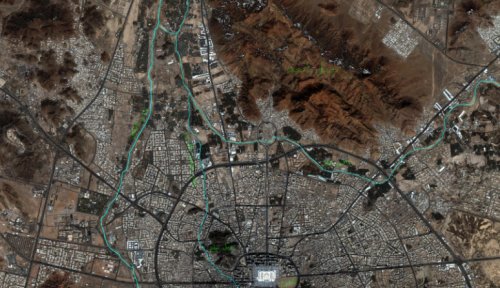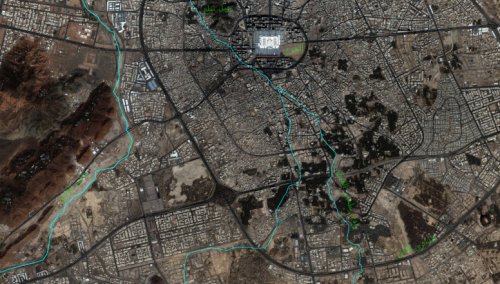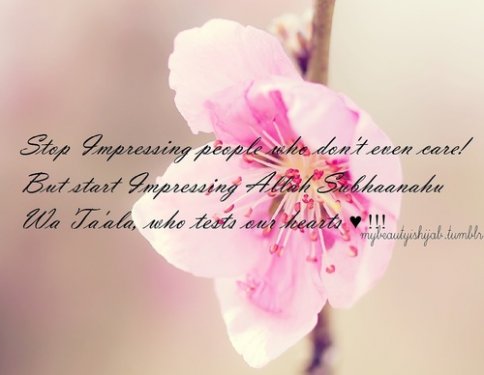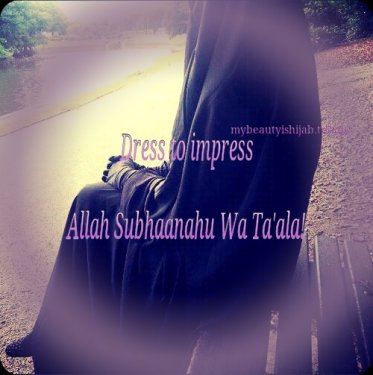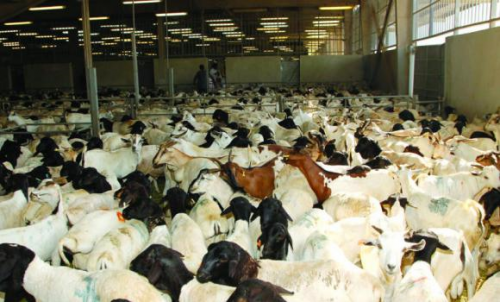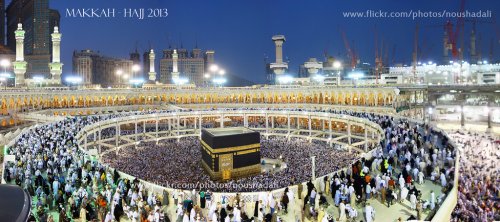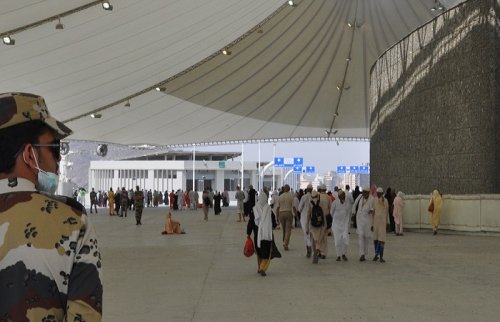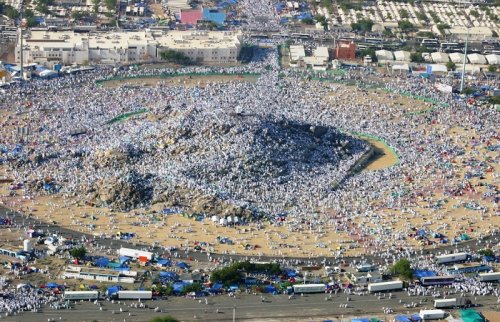-
Posts
8,434 -
Joined
-
Days Won
771
Content Type
Profiles
Forums
Events
Everything posted by ummtaalib
-
Man ‘Arafa Nafsahu faqad ‘Arafa Rabbahu Whosoever knows himself knows his Lord
- 1 reply
-
- 1
-

-
Question Salaam: A few questions raised in this regard. 1. Authentic hadith that the Prophet ordered people to fast on the day of ashura. (Not hadith quoted during the rule of the ummayad dynasty and the abbasid dynasty). 2. Is the Jewish calendar and the Islamic calendar the same? Do days that occur on one particular day in the jewish calendar re occur the same time in the Islamic calendar. — The Jews had their own calendar and months. There is no logic in saying that they fasted on the 10th of Muharram – unless it could be proved that this date always coincided with a Jewish day of fast. 3. Can you quote hadith (with factual proof) that all the great attonment days you have specified fell on the day of ashura.The month in which God delivered the Israelites from Pharaoh was Abib (i.e. Rajab), as the Bible clearly says: “Observe the month of Abib, and keep the passover unto the Lord thy God: for in the month of Abib the Lord thy God brought thee forth out of Egypt by night.” (Deut., 16:1) The question is: How could the Jews transfer an event of Abib (originally coinciding with Rajab) to Muharram, in open defiance of their Torah? here is a point to ponder for the Muslims: The Prophet (s.a.w.) was sent with a religion to abrogate all previous religions and shari’ah. How was it that he deigned to imitate the custom of the Jews? Answer 1. The definition of an authentic hadith is : “That which is narrated by an Adil (Just), Dhabit (those with good memories), without any breaks in the chain of narrators and which is not Shaaz (Rare) neither is it Muallal(defective).” This is the definition of an authentic narration and it is a definition which is agreed upon by all the authorities of Hadith. None of them mention a condition that it was not narrated during the Umayyad or Abasid rule. The ahadith quoted in the answer 5269, fulfil these conditions. 2 & 3. The Jewish calendar and the Islamic calendar are both different, however both are lunar calendars, thus a day could appear on the same date on both calendars every year, even though this is not the case here. In fact what really happened was the ignorant Jews began using the solar calendar and calculated their festivals and holidays accordingly, thus their Passover, now began to rotate throughout the solar year. When Nabi (SAW) came to Madina, he found them fasting on the day they said is the day wherein Moosa (AS) was saved, so Nabi (SAW) said that we will fast on the day in which Moosa (AS) was saved, which happens to be the 10th of Muharram. This does not mean that both the Muslims and the Jews were fasting every year on the same day and that both calendars had to match. As for Nabi (SAW) fasting on the same day as the Jews and thus imitating them, it should be remembered that Nabi (SAW) and the Quraish were in the habit of fasting on Aashuraa, even before Islam.(Bukhari No.2002-With Fathul Bari .Darul Manaar) Now when the Jews said that they are fasting as Moosa (AS) was saved, Nabi (SAW) said that we are closer to him than you, thus this is all the more reason to fast on this day. thus the reason for fasting wasn’t to imitate the Jews, as Nabi (SAW) had been keeping the fast before. Nabi (SAW) later ordered the Sahaba (RA) to fast on the 9th or the 11th as well, to show that we are not imitating them.(Fathul Bari Vol. 4 Pg.290-Darul Manaar,Faidhul Bari Vol.3 Pg.177) and Allah Ta’ala Knows Best Mufti Ebrahim Desai askimam.org
-
Pebbles Collection at the Jamaraat More than a hundred million pebbles weighing more than twenty tons thrown at the Jamaraat! Al-Jazeera.com Pebble collecting mechanism at the Jamaraat Bridge
-
-
The Dam of Aaqool & the Fire of Hijaz The dam is an important recreational area of the people of Madinah. After rainfall, the valley of Qanaat flows and millions of cubic meters of its waters gather at the Aaqool Dam. It is a fascinating view; water as far as the eye can see. Experts say that Aaqool has the largest store of underground water in Madinah. The formation of the Aaqool Dam is linked to the historically significant "Fire of Hijaz". The Prophet sallallaahu 'alayhi wasallam professed of the Fire of Hijaz, which was witnessed in 654 A.H. This fire threw volcanic lava and rocks into the Valley of Qanaat, blocking the water flow and forming a natural dam. In 690 A.H. water gradually eroded through the dam and the valley once again began to flow. Effects of the Fire of HIjaz; basalt and black rocks are still visible today at the site of the dam. Water in the Dam of Aaqool Click on Picture to enlarge The Fire of Hijaz Allah's Apostle said, "The Hour will not be established till a fire will come out of the land of Hijaz, and it will throw light on the necks of the camels at Busra." Sahih Bukhari Hadith no. 7118 He further stated; "The Hour will not be established till a valley of the land of Hijaz will not flow with fire, throwing light on the necks of the camels at Busra." Fath ul Bari 13/80 Busra (Vowel led "u" not "a") i.e. a city between Tabuk and Syria, not the city of Basra in Iraq. Allamah Samhoudi states, "The fire mentioned in this hadith appeared in 654 A.H. This fire was visible from Makkah, Yanbu, Taimaa and Busra. This proved that it was the very 'Fire of Hijaz' which the Prophet sallallaahu 'alayhi wasallam had foretold so that the people may take heed. Allamah ibn Hjar states, "The fire referred to in this hadith is the one witnessed on the outskirts of Madinah as is explained by Qurtubi and others" Allamah Qastalani (who was in Makkah at the time of the fire) states, "On the day of Friday in the afternoon this fire rose and the skies were blackened with its smoke and darkness prevailed. By night its flames could be seen. The fire looked like a big city south east of Madinah. It moved to Banu Quraidhah then spread to the east and finally went into Waadi Qanaat. It moved on the surface of the ground pulverizing and melting mountains and rocks which stood in its path. Its flames were like towering mountains and extended ranges, throwing molten rocks in to the air like waves of the sea. It would move like a storm in the ocean. Its sound was like thunder of lightening. It lasted for three months so that people may take heed and fear the fire of the Hereafter. This fire was visible from Makkah, Yanbu, the mountains of Sayah and Taimu, and Busra. It drove a large river of molten rock into the waadi which gathered at its end forming a natural dam. When water flowed in to the waadi it gathered at this dam in huge quantities until it formed a sea of water as far as the eye could see. In 690 A.H. the force of water gradually broke its way through the dam making it flow normally once again". The Saudi Government built a number of dams on the river of Qanaat at Aaqool to efficiently utilise its water for agriculture and to protect Madinah from flood in case of over flow. "Pictorial History of Madinah Munawwarah" by Dr. Muhammad Ilyas Abdul Ghani
-

A New Bid'ah - The Gift Custom Of 10Th Muharram
ummtaalib posted a topic in General Islamic Articles
A NEW BID'AH - THE GIFT-CUSTOM OF 10TH MUHARRAM by Maulana A S Desai, Mujlisul Ulama of South Africa Rasulullah (sallallahu alayhi wasallam) said: "He who expands on his family in the matter of nafqah (house expenses) on the day of Aashuraa', Allah will expand on him throughout the remaining part of the year." Aashuraa' is the 10th of Muharram. In the aforementioned Hadith the term 'was-sa-ah' derived from the root word tausee', has been translated as 'expand'. The words 'lavish' and 'generous' do not convey appropriately its meaning. In the context of this Hadith, the term means: spending more than usual. In other words, a bit lavishly, with greater generosity but without waste. FOOD The authorities of the Shariah, (the Akaabir Ulama) have restricted the lavish expenditure of this day to food. We are required to spend a bit more on food and provide delicious dishes for the family on this day. The issue of providing more delicious food or spending more than usual on food on this day, has different meanings for different communities and for even different families in the same community. Most nations have what is called a staple food which they consume throughout the year. The overwhelming majority of people live in poverty and cannot afford sumptuous dishes. For such people the meaning of the Hadith is quite simple and clear. The man in the house should endeavour to bring more than the usual staple diet. Poor people who perhaps eat meat a couple of times a year, will truly appreciate and relish the sumptuous meal. As far as the vast majority of the Ummah is concerned, the Hadith is fully relevant. The father/husband should endeavour to bring extra food home for the Day of Aashuraa'. However, in the context of an affluent society which daily enjoys Bid meals and sumptuous food, the question of bringing in extra food and more delicious food does not apply. Every day we eat the best of food. Delicious food has become such a norm on a daily basis in our affluent society that there is a dilemma on the day of Eid -- what should be prepared on Eid days? Since we eat lavishly and luxuriously and gluttonous every day of the year, the question of 'expanding' in the matter of food or serving lavishly or having more sumptuous dishes does not relate to us whether on Aashuraa' day or on Bid days. EMULATION It is on account of the inability to become 'lavish' in the matter of food on the Day of Aashuraa' that shallow-minded learned men and learned men with pecuniary and commercial interests have taken advantage of the ignorance and gullibility of the public. Their worldly and nafsaani interests and motives have constrained them to invent a new bid'ah. They have now introduced the bid' ah of buying and exchanging gifts for the family on Aashuraa' day. This is a new custom which people have introduced in emulation of kuffaar practices. And, they have done so solely for worldly motives. The kuffaar serve their pecuniary and worldly interests by the introduction of practices which they hoist on gullible consumer4ndoctrinated public. People have become the slaves of their nafs. Mass advertising has taken a disastrous toll on the brains of ignorant and unwary people driven like dumb animals by the nafs. In this regard the kuffaar started off with birthdays and gradually progressed to mother's day, father's day, this day and that day. All these days are commercial days to strip stupid people of their money. Following this kuffaar trend, radio molvis of baatil are now advertising 'Aashuraa' Day' as a day of gifts like Christmas day, Valentine's day, Mother's day, Father's day, Uncle's day and Shaitaan's day. After all, what better can be expected of shaitaan's radio appendages? BID'AH Muslims should understand that this bid'ah of Aashuraa' being a day to buy gifts is a haraam custom executed in emulation of the kuffaar. It is not permissible to indulge in these un-Islamic practices. Rasulullah (sallallahu alayhi wasallam) said that Muslims will emulate the kuffaar so thoroughly that if they (the kuffaar) had to creep into a lizard's hole, Muslims too will follow them into the hole thinking that it is an act of honour, This is precisely what is happening in this age. Every baseless and nafsaani custom of the kuffaar is imitated. An Islamic hue is given to the kuffaar practice to hoodwink the masses into acceptance Muslims who due to their affluence are unable to increase the lavishness of their food, should think of their poor and less fortunate brothers and sisters in other parts of the world or in their own towns and cities. Spend on them lavishly on the Day of Aashuraa' and gain their heartfelt dua as well as the thawaab of Sadqah. But to indulge in the haraam and wasteful gift custom is a deception of shaitaan and a new bid'ah. At least all adult Muslims will understand that a couple of years ago there never existed this confounded 'gift-custom' on 10thMuharram. The senior Ulama had never propagated this custom Worldly molvis who are destroying the morals of the community are the originators of this custom of giving and exchanging gifts on the Day of Aashuraa'. Rasulullah (sallallahu alayhi wasallam) said: "Whoever clings to my Sunnah at the time of the corruption of my Ummah will obtain the reward of a hundred martyrs (shuhada)." Issued By: Mujlisul Ulama of South Africa PO Box 3393, Port Elizabeth, 6056 Rep. of South Africa -
9 Hot Tips For Winter Souls By Umme Ammarah (For our readers in the Northern Hemisphere save this article for later in the year when winter creeps in!) It is said winter is a time when people suffer from so called winter blues. But it is interesting to see how many people welcome winter because they see it in a different light. Instead of being down and in active you can be pro active revive your energy in ibadah (worship), increase your good deeds, take care of your obligations and earn the pleasure of Allah all at the same time. Here are some tips to benefit from winter: 1. FASTING Winter is the best season for the believer because Allah Ta’ala makes worship easy for him. This is because in winter, the believer can fast during the day with ease without suffering from hunger and thirst. The days are short and cold, and he therefore doesn't feel the hardship of fasting… It is reported The Beloved Messenger of Allah (Peace be upon him) said: "Fasting in the winter is the easy prize’ 'Umar bin al-Khattab(RA) said: "Winter is the prize of the worshippers." 2. QADHA (missed)FASTS We all know that making up the days of missed fasting is fardh (compulsory) on every adult Muslim man and woman and not doing so is a sin. So if we have missed a fast for a valid reason (travel, sickness etc) we need to "catch-up". Thus, we should hasten to fast the number of days we missed and what better opportunity than this? How much easier could it get? The days are short and the weather is cool, so you don't really get thirsty or even feel hungry 3. SALAAT The Noble Messenger of Allah (Peace be upon him) is reported to have said: "Winter is the best season for the believer. Its nights are long for him to pray in, and its days are short for him to fast in." [Hadith-Majma' az-Zawa'id' (3/203)] As for praying at night in the winter due to its long nights, one can have his share of sleep and then get up to pray afterwards and recite all that he usually recites of the Qur'an while he has enjoyed enough rest. 4.WARM WOOLIES The Noble Messenger of Allah (Peace be upon him) said: "Whoever feeds a hungry believer will be fed by Allah on the Day of Judgement from the fruits of Paradise, and whoever quenches his thirst will have his thirst quenched from the Sealed Nectar, and whoever clothes him will be clothed from the green silk of Paradise.” Try and involve our own family in these activities. Buy some blankets, gloves and warm hats and take your kids along to distribute it to the needy. There is so much good we can do if we just put ourselves forward. 5. HOT SOUPS We can prepare some nutritious soups for our family and also hand out to the poor in and around our neighbourhood. I’m sure a hot cup of soup would definitely be appreciated on a cold winter day. The Noble Messenger of Allah (Peace be upon him) said: “Worship the Most Compassionate, Feed people and spread salaam (greetings) and you will safely enter paradise.” (Hadith –TirmidhiI) 6. COZY FAMILY TIME Allah says in the Noble Qur’aan :”Oh you who believe save yourselves and families from the fire.” (Quran 66:6) .So plan such activities that will bring us closer to Allah. Be innovative and have fun within the confinements of Shariah. As it is cold, we can enjoy quality time indoors with our family which we often find difficult because we are so "busy"! Plan and do such activities that will bond the family and bring us closer to Allaah. Let the kids be involved in what you plan. Ask them for suggestions so they feel they are part of it. Sit around the warm fire/heater and read some stories of the Sahabah (RA) to the children and introduce them to the true heroes of the world or engage them in any such activities that will be beneficial. Mums and dads… use these long nights to re-kindle that flame of love. 7. KNOWLEDGE AND WORSHIP Allah Ta'ala says in verse of Quraan: “verily, in the Remembrance of Allah hearts find peace and satisfaction.” (Qur’aan 13:28) Use this time indoors to learn duas (prayers) from the sunnah, in recitation of Qur’aan, make the Zikr of Allah etc..The Noble Messenger of Allah (Peace be upon him) said; “everyday Allah showers kindness and charity on his slaves and no kindness is better than inspiration of His remembrance that Allah grants to his slaves.(Hadith-tabarani) Choose a good Islaamic book and increase your Islaamic knowledge. A Believers thirst for knowledge is never quenched. He continues to hear and learn until he enters Paradise Hadith-Tirmidhi. It was narrated that Ibn Mas’ud (RA)said: “Welcome to winter! Blessings descend in it, its nights are long to pray in, and its days are short to fast in.” This is why Mu’adh(RA) wept on his deathbed and said: “I weep because I will miss the thirst I felt when I fasted, praying at night during the winter, and sitting knee to knee with the scholars during the gatherings of knowledge.” 8. PONDER OVER ALLAH'S GREATNESS & THANK HIM FOR HIS BLESSINGS Actually, if you think about it, winter is a big blessing from among the innumerable, uncountable blessings of Allah. He is honoring us by the bounty of His Giving, His Gracious Blessing and His Great Favour, so that we may be able to pray at night, fast during the day and worship Him 9. REMEMBER REALITIES OF HELL The Noble Messenger of Allah (Peace be upon him)said: “Hell complained to its Lord, saying: “Parts of me have consumed the other parts.” So, He allowed it two breaths of exhalation: one in winter and one in summer. As for its breath in winter, that is the bitter cold, and its breath in the summer is the extreme heat.” Among the virtues of winter is that it reminds one of the extreme cold of Hell and pushes one to seek refuge from it and to do such noble actions that will ensure one is protected from Jahannam (Hell)! May Allaah Ta’ala, Most High enable us all to make best use of our winters. Ameen. EISLAM
-
Valley of Qanaat وادى قنات This valley runs from Taif through to Aaqool near Madinah and then enters Madinah from the north-eastern district and passes near Mount Rumah and flows towards Ghabah (Khulail) where it meets its end. It is also known as "Waadi Shazah". The tribe of Banu Haarithah and Banu Abdal Ash'hal populated its southern banks just east of the plains of Uhud. Waadi Qanaat passed on both sides of Mount Rumah in such a way that Mount Rumah was in the middle of this valley. The graves of Hamzah (RA), his foster brother Abdullah bin Jahsh (RA) and Mus'ab bin Umaiar (RA) were on the northern bank of this valley. In the period of Muawiyyah (RA) the water level of the water rose and its flow became fierce. This posed a danger to the graves. The blessed bodies of these martyrs were exhumed and reburied at a safer spot, now within the enclosure of the cemetery of the martyrs . The northern meander of this valley, which passed north of Mount Rumah was present up to recently. In view of further distancing the graves from the valley and to widen the plain between Mount Rumah and the cemetery to further accommodate visitors, the Saudi Govenment filled and blocked the northern meander only leaving the southern meander open. "Pictorial History of Madinah Munawwarah" by Dr. Muhammad Ilyas Abdul Ghani
-
Valley of Muthaynib وادى مذينب This valley branches off from the But'haan Valley. It begins at a distance of 10 km to the south-east of Madinah and ends at Ghabah (Khulail). The Jewish tribe of Banu Nadheer resided on its banks. Valley of Mahzoor وادى مهزور This valley begins to the east of Madinah and splits into many smaller streams which come together again at Awali and then joins Mutahynib Valley. They both meet at But'haan Valley at Ghabah and end there. The tribe of Banu Quraidhah resided on the banks of Mahzoor Valley in Awali.
-
What is the Deoband Syllabus based on? The Dars-i-Nizami is the core syllabus followed by Darul Uloom Deoband and the majority of Islamic institutions from where Ulama graduate, especially those connected to the founding Madaaris of the Indian subcontinent. This syllabus has progressed over the centuries and it is often not understood how it has come to be in its present form. For this reason Mufti has summarized this in the following table. May Allah Jalla Jalaalahu increase him in ilm, understanding and grant him long life and good health. In the time of Nabi (S.A.W) 1) Quraan 2) His noble actions In the time of Hadhrat Umar (R.A.) 1) Quraan 2) Sunnat 3) Way of Hadhrat Abu Bakr (R.A.) From the middle of 2nd century till the end of 4th century 1) Quraan 2) Sunnat 3) Fiqh 4) Arabic Poetry 5) Tafsir 6) Principles of Fiqh 7) Grammar and syntax 8) History 9) Medicine 10) Astrology 11) Astronomy. 5th – 7th century Added to above: Dialectics on Scholastic Theory Logic and Philosophy In Egypt/Syria etc. Series of Tafsir Hadith Asmaur-Rijal In Andalusia (Spain) 1) Literature 2) Poetry 3) History In Iran Logic Dominant Philosophy Dominant In Khursaan/Transovania 1) Fiqh 2) Principles of Fiqh 3) Tasawwuf In India From 7th century Hijri till end of 10th +- 200 years 1) Grammar 2) Syntax 3) Literature 4) Rhetoric 5) Fiqh 6) Principles of Fiqh 7) Logic 8) Scholastic Theory 9) Tasawwuf 10) Tafsir 11) Hadith Late 9th century: More stress on Ahadith – not successful Then: (Shah Waliullaah time) Introduction of Sihah Sitta as integral part of Syllabus Logic and Philosophy From the beginning of the 12th century Syllabus by Mulla Nizamuddin Sahalvi – contemporary of Shah Waliullaah Objective: 1) Create depth of insight and power of reading in every subject 2) Through ones own independent reading and hard work one can acquire proficiency in any subject of ones liking - Stress on Tafsir and Hadith - No focus of literature Middle of 13th Century Hijri 3 centers – Dehli – Lucknow – Khairabad Dehli:- Stress on Tafsir and Hadith Lucknow: - Stress on Fiqh and principles of Fiqh – Tafsir (Jalalayn/Baizawi) Khairabad:- Restricted to logic and philosophy Darul Uloom Deoband Curriculum:- Combination of “ALL” above 3 with post graduate studies, whilst stressing on Hadith and practice on the Sunnat Researched and Summarized By: Mufti Afzal Hoosen Elias (May Allaah protect him) 1434-2013
-
Bedtime Recitation When going to sleep it is recommended to recite Ayat al-Kursi, Surat al-Ikhlas, Surat al-Falaq, Surat al-Nas, and the last two verse of al-Baqara. This is something to give particular attention to and is emphasized to heed, since rigorously authenticated Ahadith concerning this have been established. Abu Masud al-Badri, may Allah be pleased with him, relates that the Messenger of Allah (peace be upon him) said, "The two verses at the end of al-Baqara are sufficient [in blessings and protection] for anyone who reads them in one night." [bukhari] Ali ibn Abi Talib, may Allah be pleased with him, said, "I have not seen any rational person who has entered Islam sleep until he had recited Ayat al-Kursi (Quran, 2:255). [Darimi] Uqba ibn Amir, may Allah be pleased with him, said, "The Messenger of Allah (peace be upon him) said to me, 'Do not let a night pass you unless you recite therein al-Ikhlas, al-Falaq, and al-Nas.' Thereafter, not a night passed me unless I recited them." [Ahmad] Compiled From: "Etiquette with the Quran" - Imam al-Nawawi Jamiatul Ulama (KZN) Council of Muslim Theologians 223 Alpine Road, Overport, Durban
-
There is certain etiquette that applies when we take the names of our predecessors. These are Great leaders in deen, and they deserve a certain amount of respect. Many have the habit of merely sufficing on abbreviations like: “r.a.” or “a.s.” Even worse is the use of the “s.a.w.” acronym! The Greatest human on earth deserves more respect than that. To suffice on an abbreviation instead of the entire “sallallahu’alaihi wasallam” is Makruh (offensive) according the scholars of Hadith. (Ibnus Salah, pg.189 & Tadribur Rawi, vol.2 pg.22) There were several painful consequences for those who wanted to save ink! (refer Al-Qawlul Badi’, pg. 494) In our modern era, its takes no time or energy to type out the entire “sallallahu’alaihi wasallam” or “radiyallahu’anhu” or “rahimahullah” or “’alahis salam” One could even utilise the keyboard shortcuts for this. The point is to type it in full. The Muhaddithun have encouraged writers to write the entire “sallallahu’alaihi wasallam” as well as pronounce it verbally as they write it. (Tadribur Rawi, vol.2 Pg.20, Al-Qawlul Badi’, pg.495) By the writer using or abstaining from such acronyms, the readers also learn to follow suite… Un-Matched Benefit The famed Tabi’e, Ja’far as-Sadiq (rahimahullah) said: “The angels continue to send salutation for the one who writes salutations upon Rasulullah (sallallahu’alaihi wasallam) for as long as that ink remains on the paper.” (verified by Ibnul Qayyim in Jila-ul Afham, pg.56. Also see: Al-Qawlul Badi’, pg.484 & Tadribur Rawi, vol.2 pg.19) Sufyan Thawri (rahimahullah) -the famed Mujtahid- says: “It is sufficient a benefit for those engaged in Hadith; that they continue to receive salutations themselves for as long as the “sallallahu ‘alaihi wasallam” remains written on that paper.” (Al-Qawlul Badi’, pg.485) A Motivational Incident ‘Allamah Sakhawi (rahimahullah) has cited numerous anecdotes on the above from several Muhaddithun. (Al-Qawlul Badi’, pgs.486-495. Also see Ibnul Qayyim’s (rahimahullah) Jila-ul Afham, pg.56) Among them is the following: The son of ‘Allamah Mundhiri; Shaykh Muhammad ibnul Mundhiri (rahimahumallah) was seen in a dream after his demise. He said: I have entered Jannah and kissed the blessed hand of Rasulullah –sallallahu’alaihi wasallam- and he told me: “Anyone who writes with his hands: “Rasulullah -sallallahu ‘alaihi wasallam- has said” will be with me in Jannah.” ‘Allamah Sakhawi (rahimahullah) says: “This is reported with a sahih (authentic) chain. We hope from Allah’s grace that He grants us that virtue.” (Al-Qawlul Badi’, pg.487) Ameen. Another Appeal Some of us have the habit of only saying: “alaihis Salam” when taking the name of Rasulullah (sallallahu’alaihi wasallam) The ‘Ulama have ruled it as “not good” to make a habit of this. (Fathul Mughith; see footnotes on Al-Qawlul Badi’, pg.158) In fact Hafidh Ibnus Salah & ‘Allamah Nawawi (rahimahumallah) have declared it as makruh (offensive) (Muqaddimah Ibnus Salah, pg.189-190, Sharh-Sahih Muslim, pg.2 & Taqrib ma’at Tadrib, vol.2 pg.22) The same would apply if one were to only say: “alaihis Salat” (salutations be upon him) The reason for this is that we are instructed in the Quran to send both; Salat (salutation) & Salam (peace) upon Rasulullah (sallallahu’alaihi wasallam). (Surah:33, Ayah:56) By saying: “alaihis Salam” we are only sending “Salam” (peace) and no “Salat (salutation)! If one has the habit of saying: ‘alaihis Salam (peace be upon him) sometimes and on other occasions: ‘alaihis Salat (salutations be upon him) it would not be makruh. Lets go all the way and write it in full everytime we take the name of our Beloved (sallallahu’alaihi wasallam) May Allah Ta’ala bless us all. al-miftah
-
Valley of of But'haan وادى بطحان This valley is regarded as one of the main valleys of Madinah. It enters Madinah through the eastern region of Quba and comes to Masjid Ghamamah and carries on to Mount Sal'a passing in front of Massjid Saba'ah towards Ghabah (Khulail) where it meets other valleys and comes to an end. It is narrated by 'Aisha RA, "But'haan is upon a river from the rivers of paradise" (Sahih Al Jamae Al Sagheer: 3/7) The Prophet sallallaahu 'alayhi wasallam made ablution from its water during the Battle of Khandaq. The Saudi Government has built a large dam on this river and built a vast underground water way to protect the surrounding inhabitants from its over flow. "Pictorial History of Madinah Munawwarah" by Dr. Muhammad Ilyas Abdul Ghani. Following from Al-Miskeenah Bathan Valley flowed to the west of Masjid Nabawi all those centuries ago, and still lies beneath all that has been constructed upon it ever since. However the imagination tries to conjure what the scene may have been like each year when the 12th of Rabial Thani moon hovered over these blessed valleys during the decade of our Beloved Rasul SallAllahu alaihi wasalla’s time in Madinah. Meandering through date palms, by mud houses, grazing flocks, sauntering camels, flitting singing birds, as water rippled after rains of mercy. Or as a dry sandy track where creatures scuttled, children played, wood was gathered, crops tendered, all to the ceaseless melodious sound of the Qur’an filling the skies and hearts. This is the valley that is referred to by our Blessed Prophet SallAllahu alaihi wasallam in various Ahadith. From Sahih Bukhari it is narrated by ‘Aishah RadhiAllahu anha: When Allah’s Apostle SallAllahu alaihi wasallam reached Medina, Abu Bakr and Bilal RadhiAllahu anhuma became ill. When Abu Bakr’s fever got worse, he would recite this poetic verse: “Everybody is staying alive with his people, yet death is nearer to him than His shoe laces.” And Bilal, when his fever deserted him, would recite: “Would that I could stay overnight in a valley wherein I would be surrounded by Idhkhir and Jalil (sweet smelling herbs). Would that one day I could drink the water of the Majanna, and would that the two mountains Shama and Tafil would appear to me!” The Prophet said, “O Allah! Curse Shaiba bin Rabi’a and ‘Utba bin Rabi’a and Umaiya bin Khalaf as they turned us out of our land to the land of epidemics.” Allah’s Apostle then said, “O Allah! Make us love Medina as we love Mecca or even more than that. O Allah! Give blessings in our Sa and our Mudd (measures for weighing foodstuffs) and make the climate of Medina suitable for us, and divert its fever towards Aljuhfa.” Aisha added: When we reached Medina, it was the most unhealthy of Allah’s lands, and the valley of Bathan used to flow with impure colored water. And the Prophet SallAllahu alaihi wasallam is reported to have said: “Which of you would like to go early in the morning every day to Bathan or Al-‘Aqiq and return from it with two large-humped she-camels, without committing a sin or severing the ties of kinship?” They replied, “O Messenger of Allah! We (all) would like that!” He said, “If one of you goes early in the morning to the Masjid and learns or reads two Ayahs from the Book of Allah, the Exalted and the Glorious, is better for him than having two camels, and three Ayahs are better for him than three large camels, and four Ayahs are better for him than four large camels, and so on with the number of them and camels.” Such is the virtues of learning and reciting the Qur’an. From Abu Dawud Thabit ibn Qays ibn Shammas RadhiAllahu anhu narrated: The Apostle of Allah SallAllahu alaihi wasallam entered upon Thabit ibn Qays RadhiAllahu anhu. The version of Ahmad (ibn Salih) states: When he was ill the Prophet SallAllahu alaihi wasallam said: Remove the harm, O Lord of men, from Thabit ibn Qays ibn Shammas. He then took some dust of Bathan, and put it in a bowel, and then mixed it with water and blew in it, and poured it on him. Narrated Bakr ibn Mubashshir al-Ansari RadhiAllahu anhu: I used to go to the place of prayer on the day of the breaking of the fast, and on the day of sacrifice along with the Companions of the Apostle of Allah SallAllahu alaihi wasallam. We would walk through the valley known as Bathan till we came to the place of prayer. Then we would pray along with the Apostle of Allah SallAllahu alaihi wasallam and return through Bathan to our house. To retain some detail I have posted the map in two sections, from south, the bottom map to north. Bathan valley is the one on the right etching north-west by Masjid Nabawi before continuing northward where Wadi Quna joins it at the foot of Jabal Uhud. Wadi Ranono is the middle one that meets Bathan in the Awali district, while the far left one is Wadi Aqeeq. All congregate to the west of Jabal Uhud in the area known as Al-Jurf.
-
August 20, 2011 Is it true that destiny and fate of every person is predetermined from the time when he enters into the ovary of his/her mother to his/her last breath (his/her death). Is true that destiny and fate are pre determined and regardless of whether one works hard or not nothing can be changed and even the smallest of the things, the smallest happenings, the smallest of the decisions made by that person even the minutest things that no one even cares about are pre determined. So if everything is pre determined and there is absolutely no chance of changing the destiny by any way or by any means then what will be the correct tafsir of this verse in the HOLY QURAN which is translated like a human being/person will only get what he tries for. In the name of Allah, the most Beneficent, the most Merciful. Answer Saaiduna Jabir Radiallahu Anhu narrates that the Prophet of Allah Sallallahu Alahi Wasalam said “You can never be a Muslim (believer) as long as you do not believe in Taqdeer, in it’s good and its bad to such an extent that whatever is to happen will be warded off and whatever is not to happen will not occur”. (Sunan Tirmizi p.36 v.2) Saaiduna Abu Darda Radiallahu Anhu narrates that the Prophet of Allah Sallallahu Alahi Wasalam has said that Allah has already pre destined five things for all people: age, sustenance, deeds, place of burial and final salvation or condemnation. (Musnad Ahmad) Saaiduna Abdullah Ibn Umar Radiallahu Anhu narrates that the Prophet of Allah Sallallahu Alahi Wasalam has said that all things are subject to destiny, even wisdom and stupidity. (Sahih Muslim) Accepting Imaan and faith on Taqdeer is an integral part of being a believer. With regards to your question, the purpose of mankind’s creation is that we worship Allah (SWA) and we show obedience to Him. Allah states in the Holy Qur’an, “I created the Jinn and humankind only that they might worship me.” (Surah Azzariyyat v.36) Furthermore, this world serves as a test of our obedience towards our creator and so that He may reward us in the next world accordingly. Allah states in the Holy Qur’an, “Verily we created man from a drop of mingled sperm, in order to try him: so we gave him (the gifts), of hearing and sight. We showed him the way: whether he be grateful or ungrateful (rests on his will).” (Surah Dahar v.2 -v.3 Also the notion that this world is a test warrants that the subjects being tested possess free will or else there would be no meaning to such a test. With the above in mind the concept of destiny may further be explained by understanding destiny to be Allah’s knowledge of how the individual is going to use his free-will rather than a pre-decided factor being enforced upon him without giving him a fair chance. Consider the following example: An appointment is arranged between two individuals. The first arrives before time and waits for the second; he then comments that the second will arrive late as always. He bases his prediction on previous experience and the lax nature of the second individual. This statement does not restrict or bound the latter’s ability to attend on time in any way, it is merely an assertion. Similarly, when Allah (SWA) informs us, through his infinite knowledge, of his knowledge of our precise actions and our consequent abode it should not be perceived to be a compelling decision against our free will, but rather only his knowledge of our decisions. To summarise, every individual has been given free will and should use it to work towards attaining the pleasure of Allah and that Allah has full knowledge of the individual’s actions; past, present and future. With regards to your question on the interpretation of the verse ‘And that a man does not deserve but (the reward) of his own effort’ (Surah Najm v.39), the summary of the verse is that just as on person shall carry the burden of sin of any other, so shall he benefit only from the good that he himself has done. It is not the case that a person performs a righteous act instead of someone else and the latter is absolved of his responsibility. For example, if a person performs the obligatory prayers and fasts on behalf of somebody else the latter will not be absolved of his religious duties and obligations. He is still liable for them. (Maariful Quran p.230 v.8) Finally, it should be bourn in mind that to discuss or talk about Taqdeer was not the practice of the Salaf. Saaiduna Abu Hurairah Radiallahu Anhu narrates that the Prophet of Allah Sallallahu Alahi Wasalam came to us when we were arguing about Taqdeer. He was angry and his face became so red that it looked as if pomegranate seeds had been burst upon his cheeks. He then said “Is this what you were commanded to do? Or was it for this purpose that I was sent to you? Your predecessors perished only when they argued about this matter. I adjure you, I adjure you, not to argue about it.” ’ (Sunan Ibn Majah p.9 v.1) Saaidah Aaisha Radiallahu Anha narrates that the Prophet of Allah Sallallahu Alahi Wasalam said “He who discusses any aspect of Tadeer will be questioned about it on the Day of Judgement but he who does not discuss it will not be questioned about it.” (Sunan Ibn Majah p.9 v.1) Only Allah Knows Best Mohammed Tosir Miah Darul Ifta Birmingham
-
Abdullah Ibn Amr رضي الله عنهما said that the Prophet (صلى الله عليه وسلم) said: "Truly, Allah decreed the destinies of creatures fifty thousand years before He created the heavens and the earth." [Muslim 2653] Ummul Mu'mineen A'isha رضي الله عنها said that the Prophet (صلى الله عليه وسلم) said: "A man may do the actions of the people of the Garden (paradise) whereas he is written in the Book as one of the people of the Fire, so that when it is just before his death he changes and does the actions of the people of the Fire, then dies and enters the Fire. A man may do the actions of the people of the Fire, whereas he is written in the Book as one of the people of the Garden (paradise), then when it is just before his death he changes and does the actions of the people of the Garden (paradise), then he dies and enters it." [Ahmed 3:120] In the two Sahih books there is from Ali Ibn Abi Talib رضي الله عنه that the Prophet (صلى الله عليه وسلم) said: "There is no human being born but that Allah has written his place in the Garden (paradise) or in the Fire, and has written whether he is fortunate of unfortunate." A man asked, "Messenger of Allah, should we not then abide by our decree and give up action?" He said, "Act! For everyone will be eased to that for which he is created. As for the people of good fortune, they are eased to the deeds of the people of good fortune. As for the people of misfortune, they are eased to the deeds of the people of misfortune." [Al Bukhari 1362 and Muslim 2649] One of the Companions wept as he was dying and he was asked about it, so he said: "I heard the Messenger of Allah (صلى الله عليه وسلم) as saying, 'Truly, Allah, exalted is He, grasped His creation in two handfuls and said, "These are for the Garden (paradise), and these are for the Fire,"' and I do not know in which handful i was." [Ahmed 4: 176, 177] One of the right-acting first generations said, "What makes the eyes weep? What makes them weep is the pre-ordained decree." Sufyan Ath-Thawri رحمه الله said to one of the right-acting, "Has Allah's knowledge of you ever made you weep?" That man said to him, "You leave me in such a state that I will never rejoice." Sufyan used to become exceedingly agitated about pre-ordained decrees and concluding actions. He used to weep and say, "I am afraid that in the core of the Book (al lawh al mahfuz) I am pre-ordained as unfortunate." [Jami' Al-'Ulum Wa'l-Hikam] Ibn Abi'd-Dunya رحمه الله said, "It has reached me that one of the wise people said, 'Reliance on Allah has three degrees, first: giving up complaining; second: contentment; third: love. Giving up complaining is the degree of steadfastness. Contentment is the tranquility of the heart towards that which is decreed for one, and that is higher than the former. Love is that one's love is for that which Allah does with one. The first is the degree of those who do without (zaahidoon). The second is that of the truthful (saadiqoon). The third is that of the messengers.'" [Jami' al-'Ulum w'al-Hikam, 763] Wahb ibn Munabbih* رحمه الله said, 'I looked into the matter of destiny (qadar), and I was bewildered. I looked into it again, and I was still bewildred. I then concluded that the most knowledgeable of people regarding destiny are those who keep farthest away from it, and the most ignorant of people regarding destiny are those who talk most about it.' This is supported by what the Messenger of Allah صلى الله عليه وسلم said, 'When destiny is discussed, restrain yourself from it.' [Tabaraanee] *The Imaam and erudite scholar Wahb ibn Munabbih ibn Kaamil ibn Suyah Dhi Kibaar al-Yamaanee al-Saghaanee رحمه الله, the brother of Hammaam ibn Munabbih. He was born during the caliphate of 'Uthman رضي الله عنه in 34 (AH) / 654 (AD). He travelled and studied under many Companions (Sahaabah - رضي الله عنهم) and Followers (Tabi'een - رحمة الله عليهم) and was known for his extensive knowledge of the Israelite traditions. He passed away in 110 of 113 AH. See Siyar A'laam al-Nubalaa 4:544-557. [Al-Fiqh Al-Akbar Explained, p 112] The Prophet (صلى الله عليه وسلم) said, "If something happens to you, do not say, 'If only I had done such and such!' but say, 'Allah decreed and what He willed He did,' because 'if only' opens the working of Shaytan." Imam Muslim (رحمه الله) narrated it in the same sense in a hadeeth of Abu Hurayrah (رضي الله عنه). [Muslim 2664] [Jami' al-'Ulum wa'l-Hikam (The Compendium Of Knowledge And Wisdom) - Ibn Rajab al-Hanbali رحمه الله page 761] Source
-
Nothing can alter Taqdeer but Dua Question I have read a hadith thats says some thing to the effect ""Nothing can alter taqdeer but dua." please could you provide me a reference for this hadith if it is authentic. Answer This Hadith is found in Jaami Tirmidhi (pg.35), Babu laylatul qadr ilaa duaa Fate is something which is predestined. In this Hadith ‘That nothing repels fate but du’aa (supplication)’. This Hadith mentions du’aa, to show its importance that if anything could stop fate, it would be du’aa. Du’aa is a very important tool for the believer. The Sahaaba had their needs fulfilled through du’aa. May Allah bless us so that we turn to Him in every condition – good or bad. and Allah Ta'ala Knows Best Mufti Ebrahim Desai http://askimam.org/public/question_detail/13902.html
-

Why Have Any Madhab When Not Mentioned In The Qur'an
ummtaalib replied to ummtaalib's topic in Aqeedah (Beliefs)
Assalaamu 'alaykum sister Before going any further perhaps some points need to be clarified InshaAllah 1. the madhabs are not separate "sects" 2. between the four imams are DIFFERENCES ON JURISTIC MATTERS. They are not "contradictions" 3. every ruling of fiqh in the four madhaahib are based on the four sources of Islam - Qur'an, Sunnah, Ijmaa and Qiyaas 4. people who adhere to the madhabs do not "abuse each other" - or SHOULD NOT in case they are. As far as I know from personal experience there is no abuse whatsoever among those who adhere to one of the madhabs InshaAllah this is of help -
-
-
The Benefits Of Raw Honey Honey in its natural raw state contains 2 predominant natural sugars (Fructose and Glucose) 11 enzymes, 14 minerals, 21 amino acids, all the vitamins that nutritionists consider necessary for health A,D,K, Rutin, Nicotinic acid, B vitamins, Thiamine, Riboflavin, Niacin, Pantothenic acid, Pyridoxine and Biotin as well as Ascorbid Acid (Vit. C.). HONEY PROCESSING Most honey sold today has been commercially processed, resulting in enzymes (which help digestion) and vitamins, being destroyed and protein (pollen) being removed. This processing involves heating and filtering through a cloth or fine filter paper. The end product will remain in a liquid state for a long period of time. When it finally starts to granulate, crystals will begin to form at the bottom of the jar, moving upwards (a sure sign of a refined and processed product, despite the label “Pure” Honey). WHAT CAN RAW HONEY DO FOR YOU? Raw Honey was and still is credited with marvelous curative powers. A whole book could be written on all the medicinal uses of honey, from thousands of years of folk medicine to the scientific of the present time. In addition to its age-retarding properties raw honey has been proven to be from beneficial to extraordinary effective in the following: * As honey is a pre-digested food (a process done by the bees) it enters the blood stream directly producing energy quickly, unlike refined sugar which has to be digested. * Proline, an amino acid in Raw honey is the primary component in collagen. Collagen is the main structure in bones. (Proverbs 16.24—health to the bones) Calcium is also found in two forms in Raw Honey. * Increases Haemoglobin count and can prevent or cure Anaemia. It is rich in iron and copper. * Is an excellent mild laxative, especially recommended as such for infants and children. * Raw Honey will prevent and even cure Botulism Poisoning, because it contains an enzyme called Glucose Oxidase, (this enzyme is easily destroyed with heat). Botulism spores can only develop in the intestines of infants when chronically constipated. * It has been shown to be useful in Rheumatic and Arthritic cinditions, especially in combination with Apple Cider Vinegar (Dr D.C. Jarvis). * It has been used successful in the treatment of liver and kidney disorders, diseases of the respiratory and digestive tracts, weak heart action, infectious diseases, colds, insomnia, poor circulation, and bad complexion. * It is not mere theory, but has been proved that bacteria cannot live in the presence of raw honey, for the reason that raw honey is an excellent source of potassium. The potassium draws from the bacteria the moisture which is essential to the very existence. A bacteriologist who did not believe this, after a series of tests discovered to his amazement that the disease germs he tested (typhoid, Bronco-pneumonia and Dysentery producing germs) were all killed off in the presence of raw honey. * In this book “Folk Medicine”, Dr Jarvis an ear, nose and throat specialist reveals some startling facts about raw honey and honeycomb. He says the honeycomb is excellent for the treating of stuffy nose, nasal sinusitis and hay-fever. He always says that raw honey can produce healing for skin burns and is essential in the diet of children because it provides the composite of minerals needed for the growing body ( iron, copper, manganese, silica, chlorine, potassium, sodium, phosphorous, aluminium, magnesium, zinc, lead and sulphor ). * Probably the most beneficial effect of pollen (contained in raw unfiltered honey) is that, taken internally it quickly produces the same anti-putrefactive effect as lactic foods and thus contributes to a healthy digestive system and good assimilation of nutrients—absolute prerequisites for good health and long life. Eating pollen rich raw honey causes rapid combustion, consuming fats which speed up the burning of fat, and continues through the bloodstream at a trickle stimulating the heart without harmful side effects. Nu-Life Beekeepers, P.O. Box 71, Harding, 4680 http://www.themajlis.net/Article47.html
-
-
770,000 sheep sacrificed during Haj A HAJ MUST: Sheep and goats await ritual sacrifice at a Mina slaughterhouse. 20 October 2013 A total of 770,000 sheep were sacrificed during this year's Haj, according to the Islamic Development Bank (IDB). IDB Chairman Ahmad Mohamed Ali thanked pilgrims for supporting the bank's initiative to oversee the Haj animal sacrifice project, which is aimed at providing charity for needy people in the Kingdom and across the world. In his remarks on the project’s website, www.adahi.org, he said the IDB allows Muslims from all over the world to get blessings from sacrificing animals. Ali thanked Custodian of the Two Holy Mosques King Abdullah and other Saudi leaders for overseeing the project. He called on Allah to accept the Haj of pilgrims and to protect them on their way home. http://www.arabnews.com/news/468242
-
HAJJ 1434/2013 STORIES A blind pilgrim sees the light 18 October 2013 MINA — His blindness did not prevent him from seeing the light of faith in the holy sites. He said though he was born blind, he could see the Haj rituals clearly in his heart. Abdul Moneim Naji, a Yemeni from the city of Hudaidah, was given the Haj visa as gratis by the Saudi consul in Yemen. He is performing the pilgrimage for the third time in his life. "Allah made me blind since I was born to upgrade my level in this life and the life after and to listen to my voice," he said. Naji said he was completely in harmony with himself, has peace of mind and is at peace with his blindness. He has four other blind siblings. Naji said after graduating from elementary school, he had joined a Qur'an memorization school where he has memorized the entire holy book by heart. "I felt the great difference in the Haj services being provided to the pilgrims this year in the accommodation, transportation and bathrooms," he said. Naji was thankful to Allah for giving him tranquility and peace of mind in place of his eyes. http://www.saudigazette.com.sa/index...20131018183890 ‘Fitna’ producer finds peace in the holy sites Arnoud Van Doorn talks to Okaz/Saudi Gazette reporter in MIna. 18 Oct 2013 MINA — A once strident anti-Islam activist who gained notoriety as the producer of Fitna, a derogatory film wrongly portraying Prophet Muhammad (peace be upon him), has found peace and tranquility while performing Haj this year. Arnoud Van Doorn, a former member of the Geert Wilders racist Dutch Party for Freedom, reverted to Islam a year ago after propagating against the divine religion for years. Van Doorn bitterly regrets having taken part in the production of the hateful film Fitna (Sedition) and said he was in the holy sites to atone for his sins. “I found myself among these faithful hearts. I hope that my tears of regret will wash out all my sins after my repentance,” Van Doorn said. He said, as a token of atonement, he will produce a new film that will show the true essence of Islam and the correct personality of Prophet Muhammad (pbuh). Van Doorn described Fitna as a totally wrong movie which contained a lot of misleading and incorrect information that had nothing to do with the noble divine religion or its great Prophet (pbuh). He said that since his arrival in this holy land, he has been living the best days of his life and he hoped that he could spend more time in Madinah to which he was determined to return after the completion of his Haj rites. “I felt ashamed standing in front of the Prophet’s grave. I thought of the grave mistake which I had made by producing that sacrilegious film. I hope that Allah will forgive me and accept my repentance,” he said. Van Doorn said he read a lot about Islam and regretted his erstwhile hostility to this great religion. http://www.saudigazette.com.sa/index...20131018183961 Young man carries an elderly from Arafat to Mina 18 Oct 2013 It was a heart-warming gesture that best conveyed the true essence of the Qur’anic verse “All the faithful are brothers.” Tweeters posted a photo of a non-Arab young man carrying an elderly Haji. The picture revealed that the young man wasn’t relat- ed to the older one. The young man said he carried him because “Islam teaches us to be like brothers to one another.” The caption in the photo said one of the pilgrims wanted to commend the young man for doing the right thing to his father, but the young man said: “This isn’t my father, I found him alone in Arafat, so I carried him on my back to Muzdalifah and then to Mina,” said the young man. When asked why he did it, he merely said: “All the faithful are brothers.” http://www.arabnews.com/news/468070 American rapper changes songs into supplication 18 October 2013 MADINAH — Famed American rapper George Green, who embraced Islam about two years ago and is called Ibrahim, has replaced his songs with Duaa (supplication) and Tahleel since he has set foot in the Kingdom to perform Haj. "Unlike singing, I feel the greatness of God every time I do Duaa. I also have the satisfaction from feeling completely submissive to Allah," he said. Ibrahim has been invited to the Haj by the Canadian Call (Dawah) Society and is being accompanied by the society's Chairman Shahzad Mohammed who prepared a complete program for him to visit a number of places in Makkah and Madinah. Mohammed said his society was keen to invite famous stars who have embraced Islam to the Haj so as to spread the religion among their fans. During his stay in Madinah, Ibrahim has met with the imam of the Prophet's Mosque Sheikh Salah Al-Bidair who advised him to make efforts to spread Islam and to convey its true image wherever he may be. http://www.saudigazette.com.sa/index...20131018183889 Pilgrim fulfills pledge to serve his mother 19 Oct 2013 MINA — A Pakistani pilgrim has set a shining example of how a son can be grateful to his mother. He carried his old mother on his back at a brisk pace under the sun in order to get her to the train station. Other pilgrims admired Muhammad Amin for his service to his mother as he stormed his way through the crowds. Though Okaz reporter tried to talk to him, he did not reply as he was focused on his mission: getting his mother to a safe place from the sun. The reporter followed Amin till the station, where Amin told him that his mother was sick and he was worried about her. “I have always wanted to serve my mother during Haj. My beloved mother went into coma right after she gave birth to me and almost died. Ever since my father told me that, I made a promise to carry her on my back during Haj, knowing for sure that I’d never be able to pay her for what she did for me.” Amin came to the Kingdom few years ago and kept saving money in order to pay for his mother’s Haj. http://www.saudigazette.com.sa/index...20131019183981 Pakistani man’s wish to die in holy sites comes true 19 Oct 2013 HOLY SITES — She was waiting for his return from stoning the Jamarat Wednesday evening. She was greatly concerned. She felt that something has taken place. That afternoon Adhra Izra, 60, was joking with her husband about death before he left for the Jamarat Bridge, where he had a heart attack and died after completing the stoning of the Jamarat. He was taken to Mina Al-Jisr Hospital where the doctors confirmed his death. When his wife was informed of his death she fainted. She was taken to the same hospital. After a few hours she was released from the hospital to her country’s Haj camp where she received condolences on her husband’s death. The doctor of the Haj group told Okaz/Saudi Gazette not to press her to speak on the incident so that her condition does not deteriorate. He said she was suffering from heart disease, blood pressure and diabetes. Therefore, her brother narrated what happened. He said his brother-in-law had a wish to die in the holy sites. Allah accepted his supplication, so he died after stoning the three Jamarat on the first Tashreeq Day. http://www.saudigazette.com.sa/index...20131019183982 Mother's ten-hour ordeal after losing daughter 19 Oct 2013 MINA — A mother lived through the most difficult ten hours of her life when she lost her daughter in Arafat on Oct 14. Neda’s mother and father kept searching for her among the sea of crowds to no avail. Her mother broke down and cried, thinking the unthinkable. They waited and waited for hours but could not find her even after pilgrims left Arafat and Muzdalifah. The next day, the father’s phone rang. He could not believe it when he heard the voice of his six-year-old daughter Neda at the other end telling him she was safe and sound at the center of lost children in Mina. Immediately, the father and mother headed straight to the center. They found Neda laughing and playing with female guides who found her and brought her to the center. Neda’s father said he prostrated on the floor thanking Allah for returning his daughter. Maha Fetaihi, head of female guides, said all women took a year-long course on how to deal with lost children and serve pilgrims who lost their loved ones during Haj. “There are 16 ladies and a psychologist who deals with kids who get scared and cry because they are away from their parents.” http://www.saudigazette.com.sa/index...20131019183984 Blind Tunisian woman regains eyesight in Arafat Nafeesa Al-Qurmazi 20 October 2013 HOLY SITES — After 18 months of living in complete darkness, a Tunisian woman pilgrim regained her eyesight while standing on Arafat at the climax of the Haj. The 70-year-old Nafeesa Al-Qurmazi, mother of two boys and three girls, said she came to the Kingdom for Haj totally blind and is now going back to Tunisia with her full eyesight. She lost her eyesight after she had a stroke about a year and a half ago. The doctors lost all hope that she would regain eyesight due to the severity of the stoke and her age. "I have never lost hope in the providence of Allah. I kept praying to Him all the time to give me back my eyesight," she said. Qurmazi said she decided to increase her Duaa (supplication) in Arafat and was sure that “Allah would not disappoint me. While doing the Duaa in Arafat I suddenly started to see. When the other pilgrims in my tent saw me crying with joy, they all started chanting Allahu Akbar," she said. Qurmazi said all the way from Tunisia she had been cherishing one dream: To see the holy sites, Makkah and Madinah. "Thank God now I can see and walk anywhere without any assistance from anyone," she said. She said she was overjoyed to see the pilgrims in Arafat, a scene she never expected to be true to her. "Allah has blessed me with my eyesight in the most sacred place on earth," she said. http://www.saudigazette.com.sa/index...20131020184082
-
HAJJ 1434/2013 (Pictures and articles posted by Sister Roukaya Here) Click on pictures to enlarge According to Saudi authorities, 1,98 million pilgrims attended the Hajj, against 3.16 million in 2012. The pilgrims came from abroad reached 1.38 million, against 1.75 million last year. Final day: Hajis weary but elated 18 October 2013 The fifth and final day of Haj on Thursday drew 2 million pilgrims from nearly 200 countries in what is regarded as one of the most successful seasons ever. Trains ferried pilgrims to the holy sites with few problems and thousands of volunteers, including 150 Saudi women staffing the trains, made sure that Haj 2013 was trouble-free. On the last day, pilgrims arrived at the Jamarat complex early to throw their seven pebbles each at the three concrete structures to defy Satan. Military men joined in to help the children perform their rituals. Many pilgrims returned to their temporary quarters in Makkah and Jeddah before taking flights back to their home countries this week. http://www.arabnews.com/news/468079
-
Q. It is known that to use antimony is Sunnah, antimony doesn't disturb penetration of water and purification over antimony is valid. It is right concerning antimony in powder. However Islamic shops sell antimony in the form of paste, when powder is mixed with various other ingredients, for example, with the oil. Whether it is possible to use such antimony? If it's possible, can we buy such antimony in a tube and to do ablution over it or is it necessary to check its structure? A. Kohl is usually applied along the rim of the eye. It is not necessary to wash the part of the rim of the eye that is not visible when a person normally shuts his eyes. However, it is necessary to wash the part of the rim of the eye that is visible when the eyes are naturally closed. (al-Muheet al-Burhani, Vol: 1, Pg: 33) So if the Kohl is applied to this part of the rim of the eye which is not visible when the eyes are naturally closed, it will not be necessary to remove when making Wudhu even if it is non-permeable paste. If the Kohl exceeds this part of the rim of the eye and is applied onto the skin that is visible when the eyes are closed, it will be necessary to remove the antimony when making Wudhu if it does not allow water to reach the surface of the skin. It should be noted that the type of Kohl that is specifically encouraged to use in the Hadith is Ithmid. This is a special type of Kuhl (Kohl) and has many benefits. The Prophet of Allah (Sallallahu Alaihi Wasallam) said: The best Kohl to use is Ithmid, it improves the eyesight and assists in the growth of the eyelashes (Nasai, Hadith #: 5113) NB. There are many brands of Kuhl available in the market including those that are marketed with the name of Ithmid. Unfortunately, many of these are not genuine and contain a high amount of lead, and some even contain menthol and camphor which may be harmful to the eye. A person is advised to apply caution when selecting Kuhl. As indicated in the Hadith, the best is Ithmid. The genuine Ithmid is usually brownish/reddish in colour. And Allah Knows Best Mufti Suhail Tarmahomed Fatwa Department Jamiatul Ulama (KZN) Council of Muslim Theologians 223 Alpine Road, Overport, Durban

